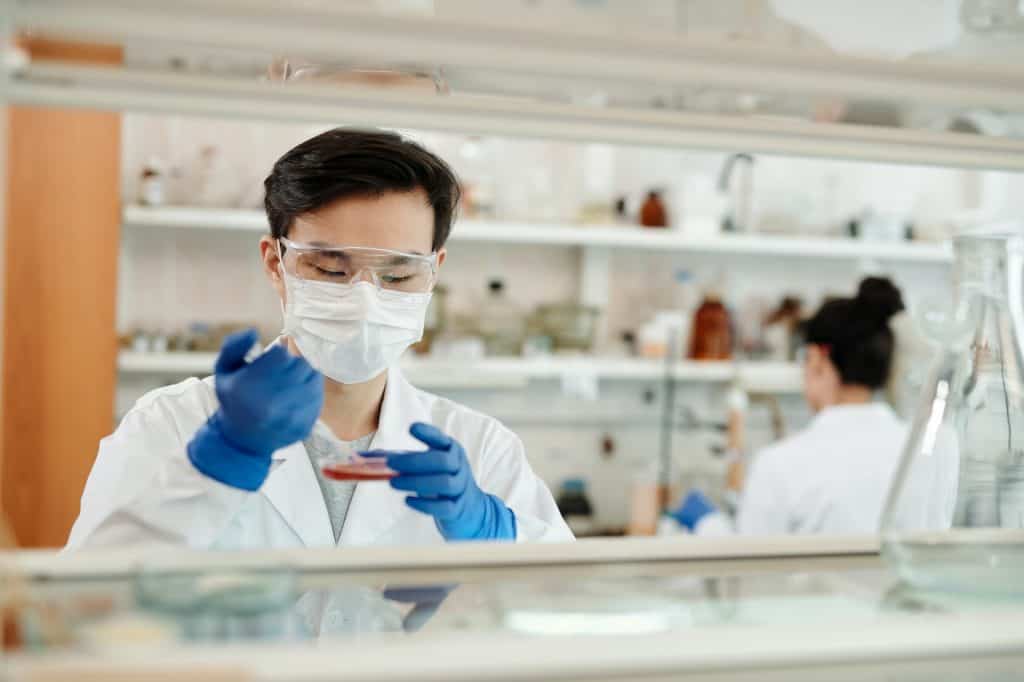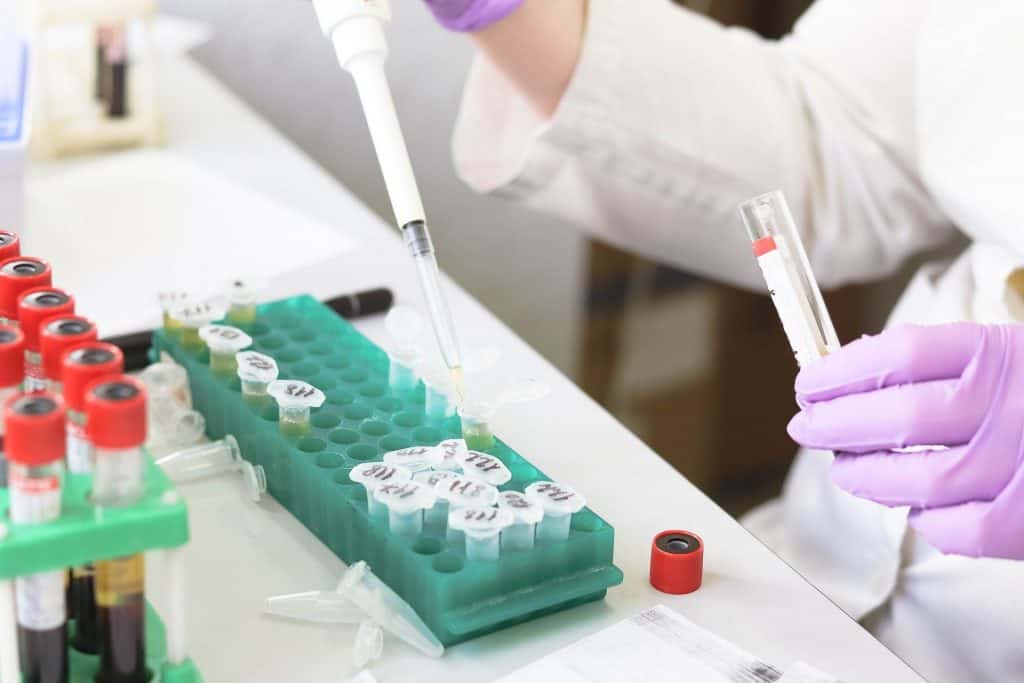A pharmacist is a great job for someone who enjoys chemistry and medical research, and enjoys the idea of helping people feel better through the use of medication. Earning the requisite Ph.D. takes time and is an intense process that can make a student question their resolve to graduate from pharmacy school, but persevere. They’re promised excellent salaries and the opportunity to help people understand how medications help them maintain their quality of life.
However, things don’t always go as they should for a pharmacist because of decisions made higher up in the corporate organization, poor working conditions, a lot of competition for a few jobs in some regions, and responsibilities that are beyond the call of duty for a pharmacist. That’s when alternative careers for pharmacists start sounding like a good idea. Here’s a look at some of the alternative jobs for pharmacists that use their hard-earned skills and talents:
1. Medical Writer

A medical writer creates scientific documents and other types of related content for publications, regulatory documents, informational pamphlets for medications, healthcare websites, and more. Becoming a medical writer is one of the best alternative careers for pharmacists due to their need to understand how medications work and interact with each other, and how they affect the human body. A pharmacist may find it easiest to start writing about medication and drug related topics, but they are also qualified to write about lifestyle topics for people working in the medical field and general advice for laypeople who have questions about medication.
Average salary: $75,650
2. Pharmaceutical Sales Representative

A pharmaceutical sales representative, or pharma rep for short, works for a pharmaceutical company and makes sales calls to doctors and medical professionals who prescribe medications. Their job is to educate physicians about the introduction of a new medication to the market, how it works, and how it can help patients suffering from a particular condition. The pharmaceutical sales representative needs to have thorough knowledge of pharmacology and be capable of educating a medical professional about how a medication works. A pharmacist who’s looking into alternative careers for pharmacists and is interested in travel as part of their job should consider becoming a pharmaceutical sales representative as the job is well compensated and is always changing.
Average salary: $77,157
3. Pharmacologist

A pharmacologist is tasked with the job of creating medications which is in contrast to the pharmacist whose job it is to dispense medications. Some of the job duties of a pharmacologist are to determine how a drug can impact the human body, research chemical combinations to create an effective pharmaceutical, uncover how chemicals can be effective in combating disease, dosage amounts, and drug interactions. A pharmacologist is an excellent option when it comes to alternative careers for pharmacists, but you may need to return to school to get the education required to work as a pharmacologist.
Average salary: $91,510
4. Toxicologist

A pharmacist is well-suited to becoming a toxicologist as both fields use the same type of research efforts to come to a conclusion. The major difference between pharmacology and toxicology is their ultimate goal: toxicology focuses on the adverse effect of chemicals on the human body, while pharmacology focuses on the positive effect of chemicals. Working as a toxicologist is one of the alternative careers for pharmacists that is an easy switch to make and utilizes all the skills and knowledge learned during a pharmaceutical education.
Average salary: $80,724
5. Clinical Research Coordinator

A clinical research coordinator conducts clinical drug trials and medical research. Their duties include identifying participants that fit the criteria for a drug trial and signing them up, ensuring that the trial meets all relevant rules and regulations, complies with the ethics of the organization that’s sponsoring the trial, tracks the data that’s generated by the trial, and keeping track of the documents that are needed for analysis. The coordinator is also responsible for determining how much money is needed to run the trial along with applying for grants and other sources of funding. These duties align with that of a pharmacist who is responsible for certain management aspects of a pharmacy, and is one of the better alternative jobs for pharmacists who want to work in research at an advanced level.
Average salary: $91,510
Average salary: $140,763
6. Medical Science Liaison

A medical science liaison is someone who assists in the development of a medical product from its inception to its finished form. They work with the key opinion leaders and build a connection between those who are tasked with the development of the product with the key opinion leaders. The medical science liaison collects information from all invested groups, then delivers it to all who are involved in order to get input from all players in the process and aid the overall development of the product. Pharmacists are ideally suited to the role of a medical science liaison in the pharmaceutical industry due to the fact they hold a Ph.D., and have familiarity with the creation and production of pharmaceuticals, and the management of people.
7. Laboratory Technician

A laboratory technician supports scientists in pursuit of research by preparing a laboratory for use, perform routine functions that are needed for experiments and investigations, recording and analyzing information, then writing reports, enforcing safety and health regulations, and other tasks that are necessary to the smooth operation of a lab. Chances are good that a pharmacist has done some or all of these tasks as part of their education, and can parlay that experience into working as a full-time laboratory technician. This is one of the alternative careers for pharmacists that enables a pharmacist to work in a scientific role, but step back from working with the general public.
Average salary: $54,180
8. Research Scientist

A pharmacist has two options when it comes to the role of a research scientist. One is to work as a research pharmacist, or to go into an entirely different area of the research sciences. A research pharmacist can work as a compounding pharmacist that has them preparing, then compounding chemicals into a medication that’s not available for various reasons, but is still legal to prescribe. They can also work in drug trials to prepare medications that are provided for test subjects and oversee their proper dispensing. Alternatively, a pharmacist can go into another area of medical research that has them performing duties other than that of compounding and controlling the dispensing of medications for a trial.
Average salary: $91,510
9. Biomedical Scientist

Pharmacists and biomedical scientists both follow similar educational paths, but the pharmacist works directly with patients while the biomedical scientist works in labs or offices. In order to transition to become a biomedical scientist, you may have to return to school to learn about the type of work you’ll be doing in a laboratory or office setting. Being a pharmacist with a Ph.D. infers an advantage to becoming a biomedical scientist due to the fact that you’ve already learned about the extensive chemistry that goes into pharmaceuticals and medications. It’s also a good transition in terms of alternative careers for pharmacists, especially if you want to get into the field of making medications instead of dispensing them.
Average salary: $88,480
10. Regulatory Affairs Officer

A regulatory affairs officer, or regulatory affairs pharmacist, has the duty of making sure clinical trials and other medication research adhere to the regulations and guidelines that apply to the research. This role is found in all areas of pharmaceutical research, including veterinary medicine, agrochemicals, pesticides, cosmetics, human pharmaceuticals, and more. The position of the regulatory affairs officer is a government-mandated one due to the fact that the products under development have to adhere to government guidelines and standards in order to obtain approval for sale on the market. A regulatory affairs officer position works well as one of the alternative jobs for pharmacists due to the fact the work draws upon the skills and knowledge learned in school and working as a pharmacist.
Average salary: $116,350
What are Some Reasons a Pharmacist May Change Careers?
The pharmacist is the person that comes between patients and their medications, and that role comes with a lot of responsibility. Dealing with addicts is one of the reasons why pharmacists may want out of their position. Addicts will doctor shop to get their drugs, and a pharmacist is tasked with the duty of preventing the addict from getting their hands on their meds. Pharmacists have to track demographics in order to make sure that a certain group doesn’t get prescribed with medication that goes against a religious edict. Meanwhile, employers are putting more responsibility onto the pharmacist, putting the pharmacist under more pressure to perform.
Employers are also looking to cut pharmacist salaries while asking them to work longer shifts. Another tactic of employers is to have prescriptions filled off-site, then transferred to a store and reduce the need for a pharmacist. Meanwhile, pharmacists have expensive tuition to pay off and need stability and a reliable income to pay down their student debts.
What are Important Skills a Pharmacist Can Take Into a New Career?
A pharmacist has many viable skills they can take into one of the many alternative careers for a pharmacist. The skills a pharmacist can parlay into a difference career include:
- Research skills
- Interpersonal and communication skills
- Mentoring
- Management skills
- Customer service skills
- Computer literacy
- Ability to prepare medications for dispensing and inform about their proper use
- Medical terminology
- Strong knowledge of chemistry
Most alternative jobs for pharmacists are found in the medical field, but a pharmacist isn’t restricted to working in the pharmaceutical branch of medicine. Many areas of medicine welcome an individual who has the skills and experience a pharmacist brings to the role.
Related:
Alternative Careers for Nurses
